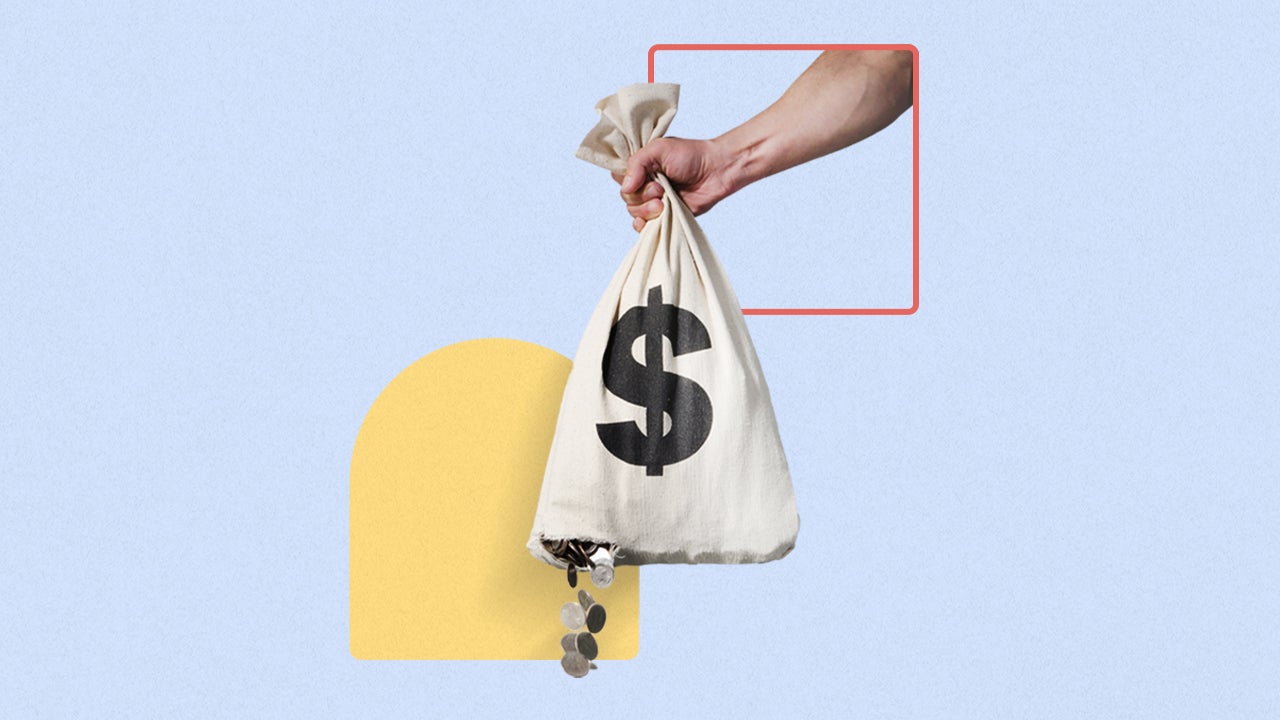Can businesses use personal loans?

Key takeaways
- Personal loans can be used to cover business expenses, as long as the loan agreement doesn’t exclude business use.
- Personal loans can be easier to qualify for than business loans because they don’t consider your time in business or business revenue
- Business loans usually have higher borrowing limits and lower interest rates than personal loans.
Although personal loans are typically only for individual expenses, some lenders allow them to be used for business purposes. This option can be appealing for startups and small businesses that may not yet qualify for traditional business loans.
It’s essential to understand the potential risks and limitations of using a personal loan for business, such as lower borrowing limits and the impact on your personal credit. Before moving forward, check your lender’s policy and compare other business financing options, like SBA loans, online business loans, business credit cards and crowdfunding.
Can you use a personal loan for business?
Yes, in some cases, you can use a personal loan to start a business or make purchases for the company. However, not all personal loan lenders allow their loans to be used for business purposes.
The deciding factor is whether the loan agreement specifies that it allows business purchases or that it doesn’t exclude business use in its list of exclusions. To avoid trouble, ask the lender you’re considering whether they have restrictions for businesses before you apply.
Business owners may prefer a personal loan over a business loan because the process is faster and often more convenient than applying for a business loan. When applying for a personal loan, lenders review your credit score and income, and there’s generally little documentation needed other than a few paystubs and identification.
What’s the difference between a business loan and personal loan?
A business loan is a loan specifically used for business purchases, either for general purchases like operating expenses or specific items like equipment.
On the other hand, a personal loan is a loan tied to your personal finances that you can use for nearly any purpose, typically for personal items like consolidating debt. Keep in mind that if you fail to make payments, the lender can go after your personal assets to repay the loan.
Consider the differences between personal loans and business loans.
| Business loans | Personal loans |
| Variety of uses: equipment, real estate, working capital and more. | Can use for most purposes. A clause may forbid you from using the funds to pay off student loans. |
| -Requires 6 months to 2 years in business -Positive cash flow summary -Down payment -Collateral -Balance sheet report -Good business and personal credit -Business plan |
-Some lenders may accept poor credit -Proof of income -Low debt-to-income ratio -Positive history of paying on time As long as you have a good history of on-time payments, a personal loan may be easier to obtain than a business loan. |
| Business loans may be SBA-backed or private. You can choose a type of loan designed for your specific needs, such as term loans, equipment loans or business lines of credit. | Personal loans are typically granted to individuals for things like debt consolidation or home repairs. |
Requirements for business loans vs. personal loans
Business loans tend to have more requirements for approval than personal loans. Personal loans have a lower barrier to entry, making them ideal if you don’t qualify for a business loan.
Consider the different factors that lenders look at when approving your loan to decide which option is best for you.
| Business loan | Personal loan | Importance of each factor | |
| Time in business | A minimum of 6 months to 2 years in business | Not required | Business loan lenders want to see a history of sustained profitability in the business |
| Revenue | $100,000 to $200,000 in annual revenue | Uses personal pay stubs to show income | Lenders approve, deny or partially approve loans based on your ability to manage repayments |
| Loan amounts | Ranges from $5,000 to $5 million | May cap at $50,000 to $100,000 | Lenders may limit the loan amount you qualify for based on your finances |
| Collateral | Collateral may be required, especially if you have poor credit or low revenue | Can be secured or unsecured, depending on the lender and your personal finances | Collateral reduces risk for the lender and may result in lower interest rates or longer repayment terms |
| Business plan | A detailed plan can help you get approved and show business profitability | Not required | This plan outlines how you intend to grow your business over the next year or several years. It proves your ability to repay a business loan. |
Credit score requirements for personal and business loans
FICO credit score requirements are similar between personal and business loans. With personal loans, the minimum credit score requirement is often 610, but you can secure a personal loan with a lower score. For example, if your credit score is 580, lenders like Upgrade and Avant may approve your loan application.
By comparison, credit score requirements for business loans typically start in the 600s . If you want the highest odds of approval and the best interest rate, you’ll need a minimum credit score in the 700s. Typically, online lenders accept lower credit scores than traditional banks and credit unions.
Personal lenders largely care only about your personal creditworthiness, while business lenders may look at your personal and business credit scores. They consider your personal credit more if you’re a startup or haven’t established your business credit.
What to consider when choosing a personal or business loan
If you’re starting a new business or entering an unfamiliar industry, a personal loan may be easier to qualify for. But personal loan amounts are generally lower than business loans, limiting how much funding you can get. Depending on your industry and startup costs, you may find that a personal loan won’t fully cover what you need like a business loan can. Business loans also tend to offer lower interest rates, which keeps your total borrowing costs minimal.
If you can qualify for a business loan, the lower cost and business use of funding makes sense. But if you can’t get a business loan or don’t qualify for the lowest rates, a personal loan offers another option to get the funding your business needs.
Pros to using a personal loan for business
There are several pros of using a personal loan for business purposes:
- Fast funding: Many personal loan lenders offer same-day funding so borrowers can quickly handle business expenses.
- Lenient lending requirements: Compared to business loans, personal loans are easier to qualify for because lenders won’t scrutinize your previous business experience, your company’s finances or how long it’s been open.
- No collateral required: Unsecured personal loans don’t require collateral, so you can qualify even if you don’t have valuable assets. However, unsecured business loans can be difficult to qualify for.
- Reasonable repayment terms: Repayment terms for personal loans can range from two to 10 years.
Cons to using a personal loan for business
There are also cons of using a personal loan for business purposes:
- High interest rate: Personal loan interest rates range from 6.5 percent to 36 percent, but the average rate is 12.58 percent. By comparison, the average interest rate for business term loans range from 7.33 percent to 7.99 percent .
- Low borrowing limits: Depending on the lender, personal loan amounts are capped at $100,000, while business loan amounts can reach $5 million.
- No impact on business credit: Payment history for the personal loan has no impact on your business credit. That could be a good thing if you miss payments, but it’s a bad thing if you want to build your business credit.
- Personal credit score is at risk: Late or missed payments can lower your personal credit and prevent you from getting approved for other types of personal credit, such as credit cards and auto loans.
How to get a personal loan for business
The application process for a personal loan may be less involved than a business loan since the loan requirements are fewer.
Here are the steps to securing a personal loan for business use:
- Confirm your credit score: Understand your credit score’s impact on loan approval, rates and terms. If you’re afraid your score is too low, raise it before applying or consider applying with a co-borrower.
- Prequalify: Prequalification allows you to discover potential rates and terms without affecting your credit. Compare and assess loan types, rates and terms across lenders to determine which one offers you the best loan terms
- Apply: After comparing lenders and loan offers, choose a lender and apply. Be prepared to submit the necessary documentation for identity and income verification.
- Finalize: Upon approval, read through the loan agreement carefully and sign loan documents to receive funds.
Alternatives to personal loans for businesses
If you’re not sure that a personal loan is right for you, consider what other funding options align with your business’s needs and goals. Alternatives to personal loans for businesses include:
Some of the best small business loans are alternative loans, available from an online lender instead of a traditional bank. These loans often fund within days and may have more accessible requirements than traditional bank loans
The bottom line
While securing a business loan to cover various financial obligations would be ideal, that isn’t an option for all businesses. A personal loan could be the answer to your funding troubles because they offer easier qualifications to get approved. However, personal loans may have lower loan amounts and higher interest rates than business loans. Be sure you explore the different types of business financing options before settling on a personal loan for business use.
Frequently asked questions
Why we ask for feedback Your feedback helps us improve our content and services. It takes less than a minute to complete.
Your responses are anonymous and will only be used for improving our website.
You may also like

Can you get a small business loan after bankruptcy?

Getting a personal loan from a credit union: What to expect

Should you get a personal loan? Here are the pros and cons



